Center for Macroeconomics (CME)
BCG Center for Macroeconomics publishes economics commentary in external publications and technical research for our clients.
We translate global macro for senior executives and investors in all industries and all geographies.
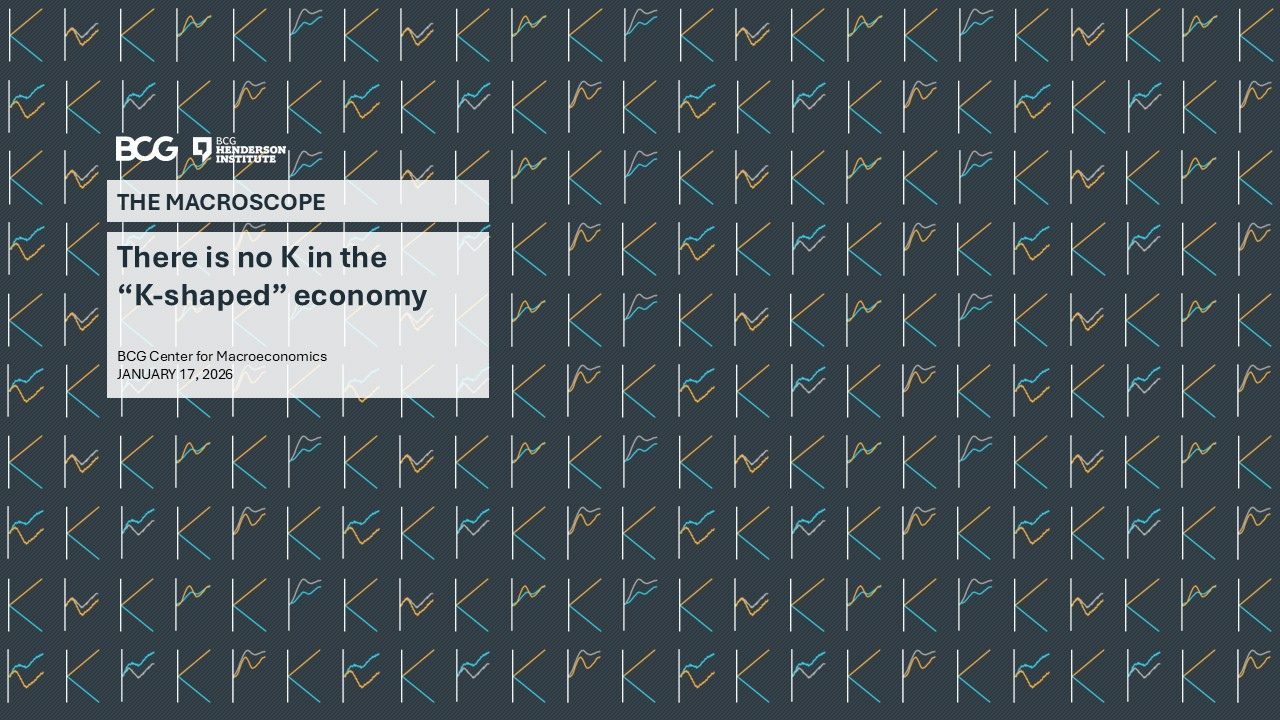
The Macroscope: There is not K in the “K-shaped” economy
The Macroscope: There is not K in the “K-shaped” economy

The Macroscope: Revisiting “affordability”—an old story, now popular
The Macroscope: Revisiting “affordability”—an old story, now popular
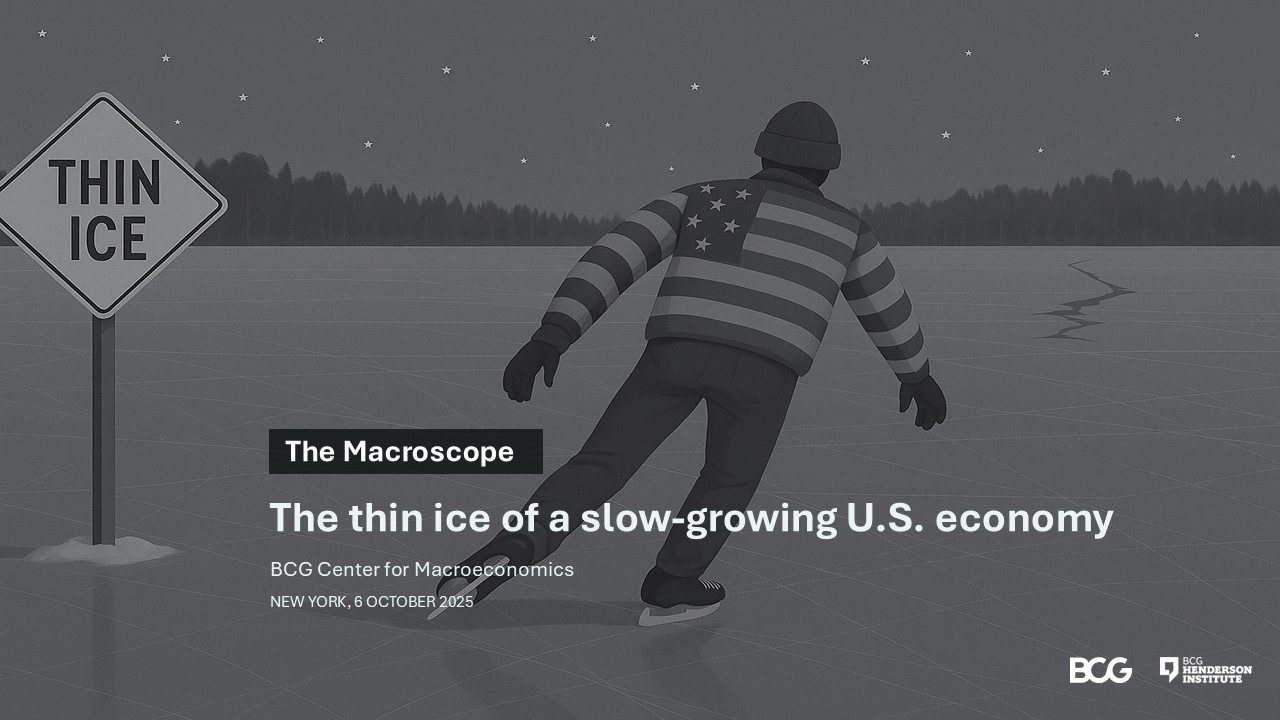
The Macroscope: The Thin Ice of a Slow-Growing U.S. Economy
A look at how slow U.S. growth is for an expansion, how policy is not setup to backstop it aggressively, and how even slower job growth may not be adding slack to the labor market.
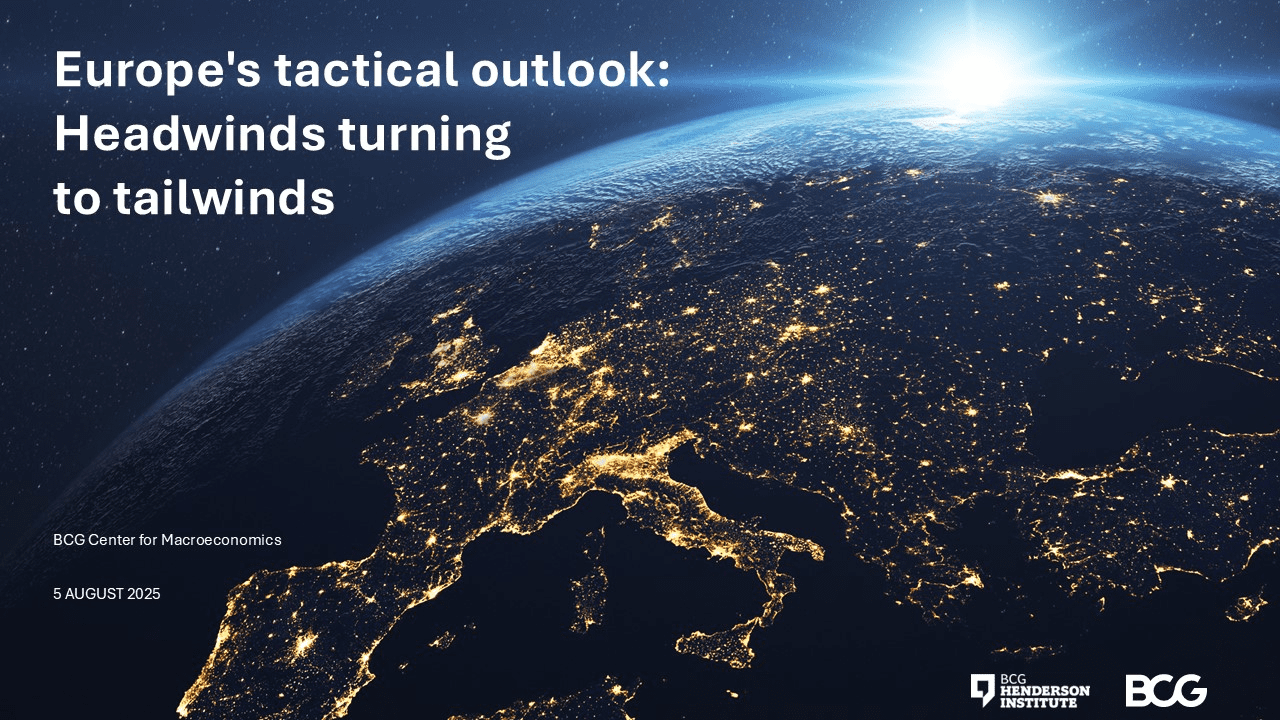
Europe’s tactical outlook: Headwinds turning to tailwinds
Europe’s economy has proved far more resilient than public discourse allowed the past few years, absorbing various shocks and digesting multiple headwinds all while avoiding recession. Now, we argue, many of the headwinds are turning into tactical tailwinds, delivering a growth outlook no longer struggling to remain above zero.

The Macroscope: What’s Missing in European Competitiveness
For Europe, the trade shock comes after 30-years of falling behind the U.S. in terms of productivity. Today, the cumulative gap in competitiveness is so large and growing that it can no longer simply be rationalized, trivialized, or relativized.

Understanding the Global Macroeconomic Impacts of Trump’s Tariffs
This research was published on April 10, 2025 On April 2, President Trump followed through on campaign promises to steeply hike tariffs on U.S. trading partners, taking the average effective tariff rate to around 23%, a near 10-fold increase of the rate last year. As sharp and severe selloffs in financial markets underline the global […]

Navigating the Economy Amid Deliberate Policy Uncertainty
Today’s executives are navigating a landscape where risks are up and visibility is down. Trump’s deliberate uncertainty has added new risks, but the death of the current economic expansion is not as clear cut as current public discourse likes to paint it.
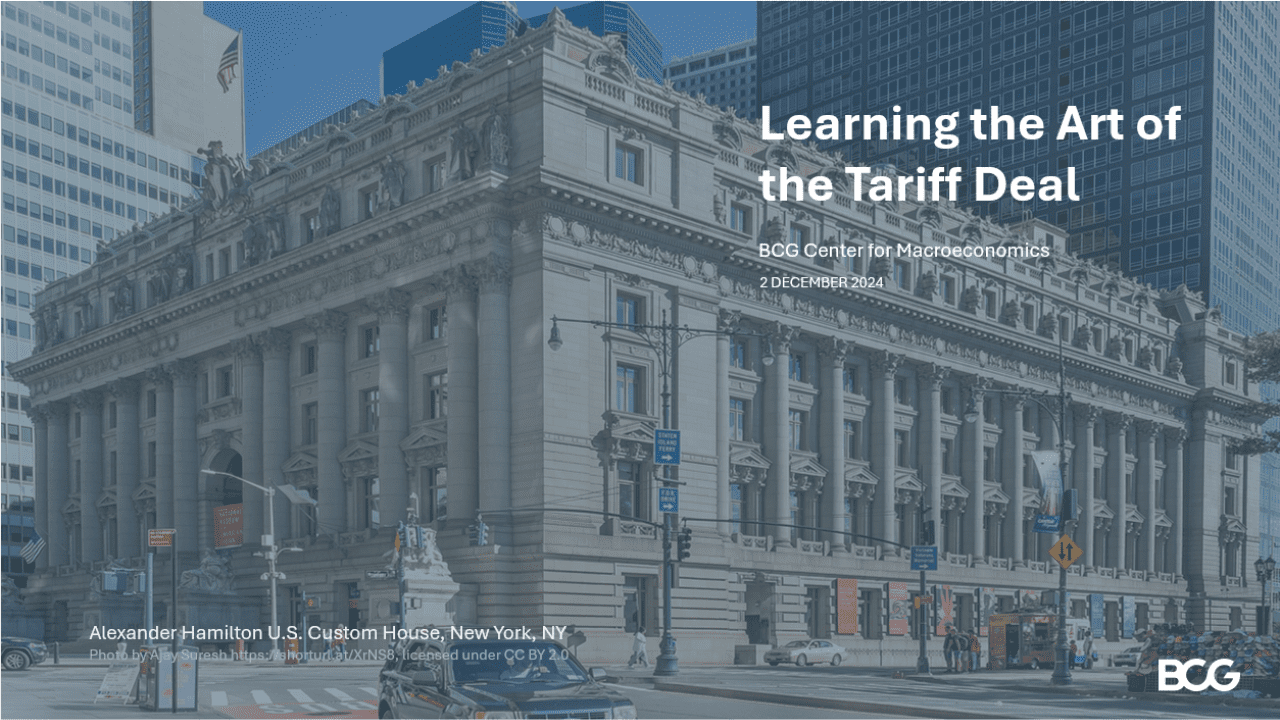
Learning the Art of the Tariff Deal
The global trade order is likely to be strained in ways unseen in decades—requiring continuous reassessment.

Why AI Will Not Lead to a World Without Work
Predictions of technology-driven job destruction have a long history and correspondingly, a long record of failure. Angst about worker obsolescence ebbs and flows with each new generation of technology.
Book: Shocks, Crises, and False Alarms
How to assess true macroeconomic risk
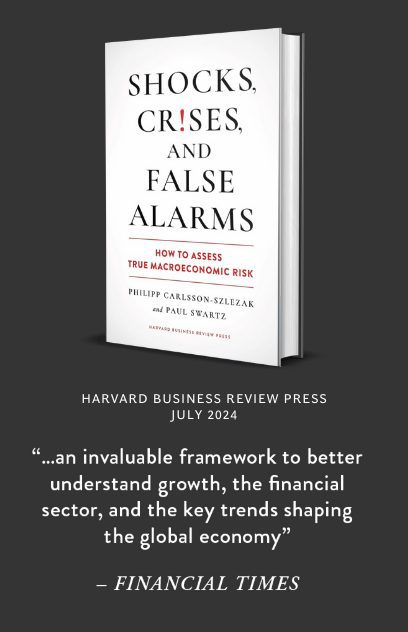
Book Website | Shocks, Crises, and False Alarms
Visit the book website for Shocks, Crises, and False Alarms: How to Assess True Macroeconomic Risk for reviews, press coverage, live events, podcasts and more.
How to Assess True Macroeconomic Risk
Understanding macroeconomic risk—the potential for negative or positive change, both cyclical and structural—is essential to responding to threats with rational optimism.
Hidden Forces Podcast
Philipp Carlsson-Szlezak, BCG’s Global Chief Economist, joined host Demetri Kofinas to discuss how to assess macroeconomic risk without relying on broken models, pervasive doom-mongering, and whipsawing data prints.
Live Events & Podcasts
Bloomberg Masters in Business Podcast
Podcast hosted by Barry Rithotz
Bloomberg Masters in Business Podcast
Philipp Carlsson-Szlezak, BCG’s Global Chief Economist, joined host Barry Ritholtz to discuss the pitfalls of traditional economic research and the benefits of the eclectic, narratives-based approach outlined in his and BCG Sr. Economist Paul Swartz’s book.
Fast Company Innovation Festival
Live event hosted by Fast Company
What’s at Stake This Election Year
Philipp Carlsson-Szlezak, BCG’s Global Chief Economist, discussed the economy in the context of an election year at 2024’s Innovation Festival.
The Economic Club of New York
Webinar hosted by ECNY moderated by Frank Brosens of Taconic Capital
Author Series: Shocks, Crises, and False Alarms
Philipp Carlsson-Szlezak, BCG’s Global Chief Economist, led a webinar hosted by the Economic Club of New York to discuss his new book.
Moody's Inside Economics Podcast
Podcast hosted by Moody's chief economist Mark Zandi
Inside Economics: Shocks, Crises, and False Alarms
Philipp Carlsson-Szlezak, BCG’s Global Chief Economist, joined the Inside Economics team to share his views on the economy and discuss his newly published book.
Macro Hive Podcast
Podcast hosted by Macro Hive CEO and Head of Research Bilal Hafeez
Macro Hive Podcast: Philipp Carlsson-Szlezak and Paul Swartz
Philipp Carlsson-Szlezak, BCG’s Global Chief Economist, and Paul Swartz, Senior Economist, joined host Bilal Hafeez to discuss their new book, Shocks, Crises, and False Alarms: How to Assess True Macroeconomic Risk.
Venture Capital
Live event on venture capital hosted by the BCG Center for Macroeconomics
The Power Law with Sebastian Mallaby and Howard Morgan: Venture Capital Event Transcript
Sebastian Mallaby discusses his recently published book, The Power Law: Venture Capital and the Making of the New Future, while Howard Morgan brings his practical perspective as a venture capitalist in a conversation moderated by Philipp Carlsson-Szlezak, BCG’s global chief economist.
Inflation, Rates, Recession Risk
We continually publish tactical research

The Macroscope: The Thin Ice of a Slow-Growing U.S. Economy
A look at how slow U.S. growth is for an expansion, how policy is not setup to backstop it aggressively, and how even slower job growth may not be adding slack to the labor market.
Revisiting Recession Risk, Early 2025 Edition
Today, new risks—specifically, new uncertainties—are rising, clouding the outlook and undermining confidence in continued growth built on a healthy U.S. consumer and strong economic momentum. Yet these risks cannot be assessed by translating uncertainty into the certainty of negative outcomes. Risks are up, but we should not rush to recessionary conclusions.
Economic Pessimists’ Bet on a 2023 Recession Failed. Why Are They Doubling Down in 2024?
2023 has not been kind to the pessimists who shape the public’s perception of the U.S. economy. We see reason to double down in 2024 on our own far more optimistic stance we’ve held for over a year.
Technology and Productivity Growth
We continually publish thematic research

Why We Need to Be Realistic About Generative AI’s Economic Impact
Technology’s impact on productivity growth has been consistently overstated — are analysts repeating that mistake with generative AI?
Has Tech Truly Disrupted the Economy? Not So Much So Far
Digital disruption may be an accomplished fact for consumers enjoying ever more innovation, and for the firms driving it, but there is little evidence of macroeconomic disruption.
Why We Shouldn’t Overstate the Pandemic’s Effect on Productivity Growth
A boost to productivity growth is a commonly cited macroeconomic silver lining of the COVID-19 crisis. After lockdowns and social distancing forced consumers and firms to adapt to digital channels, even for services a credible narrative of a productivity tailwind has emerged.


